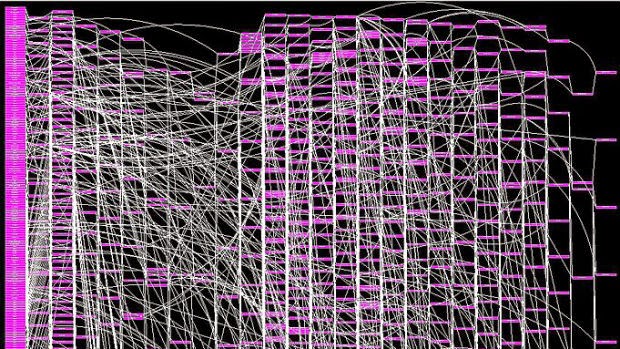Are We Living in a Family History Simulation?
Lincoln Cannon
13 December 2013 (updated 9 February 2026)

Last time I posted, we imagined that one of the things we might do with vast computing resources in the future is run highly detailed family history simulations, to the point of enabling the characters with artificial intelligence and fully immersive consciousness. If something like $150 could purchase more computing capacity than that of all human brains combined, we might run many thousands, millions, or more family history simulations, for education, entertainment, research and innumerable other purposes.
Now imagine further that you actually live in such a future. FamilyHistory.com version 42) has just been released, and all your friends are using it to run family history simulations. One day, while you and a friend are watching some of your ancestors, your friend turns to you and asks, “Are we living in a family history simulation?” You laugh of course, but your friend insists.
“Seriously! Are we living in a family history simulation? Think about it. FamilyHistory.com probably runs at least a million family history simulations. Each of them includes billions of artificial intelligences that, so far as I can tell, experience their world like we experience ours. That’s something like, oh, let’s just say eight quadrillion artificial intelligences. What are the chances that you and I happen to be among eight billion natural intelligences instead of eight quadrillion artificial intelligences? … one in a million, or less because that’s assuming a non-simulated world simulated the others. I’d say we’re almost certainly living in a family history simulation.”
Your friend would be right. If there are a large number of worlds verified to be inside family history simulations, and no worlds verified to be outside family history simulations (despite common assumptions about our own world), the laws of probability entail that any given world, including our own, is most likely to be inside a family history simulation, and worlds outside family history simulations are merely an improbable hypothesis. In other words, if we run many family history simulations, we probably already live in one. Fellow tech-philosophy nerds should take a look at a formal development of this idea, known as the Simulation Argument.
Now this philosophical argument doesn’t purport to prove that we’re actually living in a family history simulation. It only purports to prove that at least one of two possibilities must be true: either (1) we will never compute many family history simulations to a degree of detail that enables characters with artificial intelligence and fully immersive consciousness, or (2) we probably already live in such a family history simulation. However, both possibilities present us with some challenges.
The first suggests various probabilistic or hard limits to our technological progress. Maybe we’re likely to destroy ourselves with powerful new weapons or succumb to natural global catastrophes before attaining the ability to run detailed family history simulations. Perhaps we’re destined for some form of totalitarian control that would stifle such innovations. It may even be the case that the complexity or nature of consciousness is such that completely immersing or embedding it in a simulation is impossible or progress toward it would be asymptotic – indefinitely progressing slower and slower while requiring more and more resources.
Of course, if the first possibility is not true then the second must be, and it entails that reality is not what most of us usually suppose it to be. So what do you think? Are we living in a family history simulation? Could and would we simulate our ancestors to the point of artificial intelligence and immersive consciousness?
Ancestry.com originally planned to publish this article, but later decided that it would be too controversial for their audience. H+ Magazine later republished this article as “Future Ancestry Research: Are We Already Living in an Advanced Family History Simulation?” And Institute for Ethics and Emerging Technologies later republished this article as “Are We Living in a Family History Simulation?”


